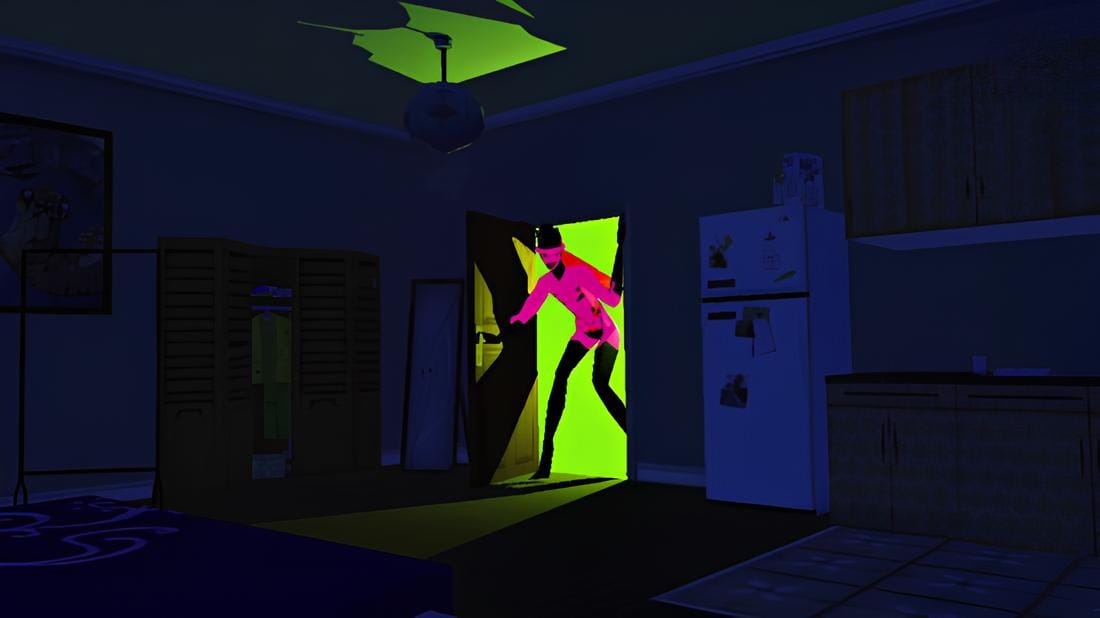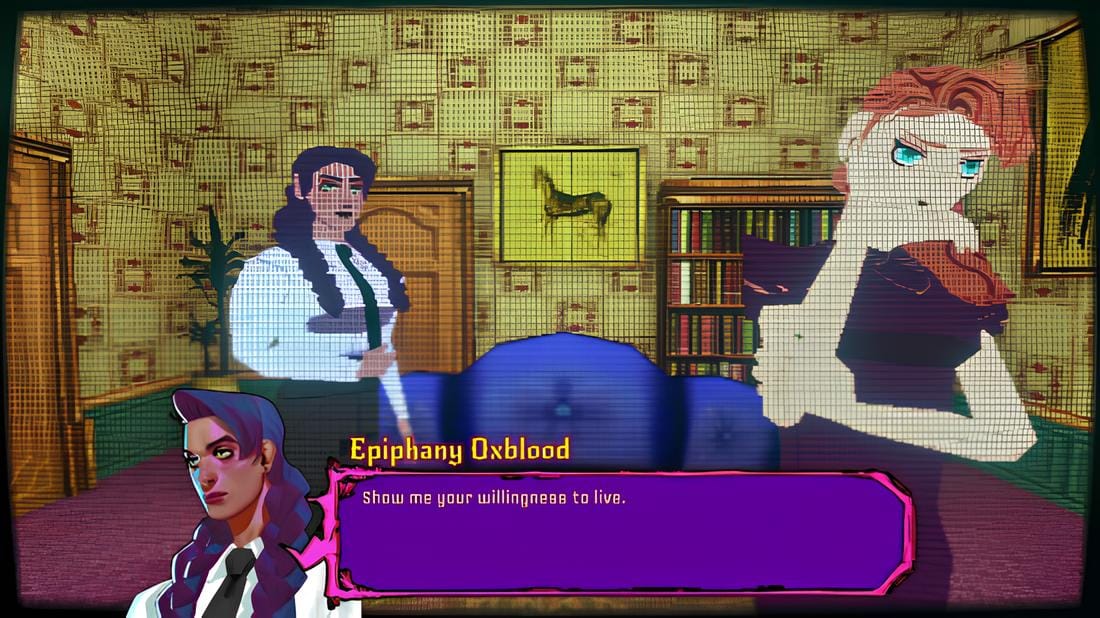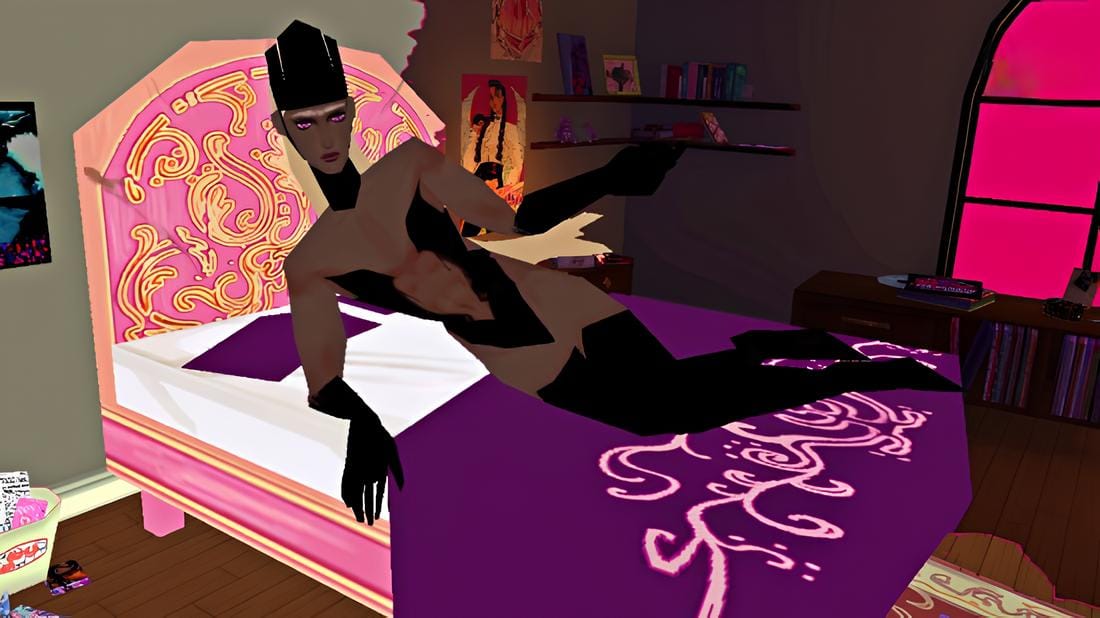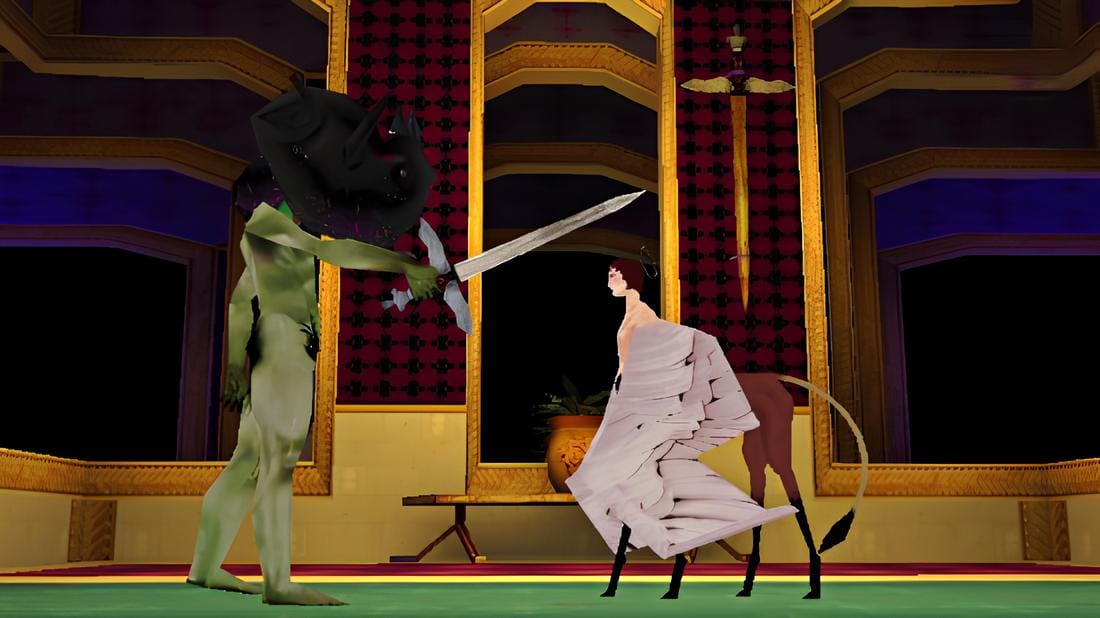Indie horror game 'Sorry We're Closed' takes inspiration from Silent Hill 2
À La Mode's first foray into survival horror is both an homage to Silent Hill 2's love story and a bold reimagining that explores its aftermath.

Sorry We're Closed undeniably echoes Silent Hill 2: fixed camera angles, psychosexual monsters, and grimy, decaying environments. Yet, these similarities are superficial, much like the celestial beings that populate its world. While other games imitate Silent Hill 2 as tribute or to update it, indie studio À La Mode takes a daring approach. This newcomer confronts its inspiration and pushes the boundaries of the narrative established two decades ago.
In Sorry We're Closed, love is an elusive state, unattainable by both the divine and the demonic. This retro survival horror game examines how love transforms us, with those changes manifesting as body horror – a permanent alteration with a steep cost. Acts of love are often violent, bloody, and morally questionable. Despite (or perhaps because of) the familiar imagery of pyramid heads, nurses, and abstract figures, Silent Hill 2 shares this same philosophy.
James Sunderland's love for his wife leads him to commit unspeakable acts. It's the force that draws him to Silent Hill, a psychological purgatory of self-punishment. He is both captive and captor, and self-acceptance is his only escape, forcing him to acknowledge the harm he inflicted on his beloved. Silent Hill's manifestation of Mary offers him forgiveness, the fog dissipates, and he departs with Laura, the innocent symbol of truth and acceptance.

Like Silent Hill, Sorry We're Closed places us in a distinct location. Instead of a quiet town in Maine, we find ourselves in London, England. While James is essentially a visitor, Sorry We're Closed's protagonist, Michelle, is a heartbroken young woman working the checkout at a local convenience store. Her routine involves mundane trips to the record store and diner before returning to her small apartment. Michelle is no stranger here; she's part of the community, yet emotionally isolated by her heartbreak.
Michelle's journey into the underworld isn't about atonement, but stems from guilt. Her regret over her past relationship makes her susceptible to the Duchess, a powerful demonic entity yearning for love. This encounter awakens Michelle's perception, allowing her to traverse realities and uncover a realm where fallen angels represent the ultimate break-up. Hell is deserted, its inhabitants consumed by heartbreak.
Sorry We're Closed conveys Michelle's power through Silent Hill 2's thematic naming conventions. "Sunderland" symbolizes James' fragmented psyche, creating the 'sundered land' of Silent Hill's Otherworld. Michelle lacks a surname, but her first name, meaning "one who is like god," signifies her authority over angels, demons, and the Duchess. She is desired but refuses objectification. Her capacity for love, and its potential to inflict pain, makes her a driving force in her own Otherworld. Her ultimate weapon is the "Heartbreaker" rifle, fueled by the minor wounds inflicted by her other weapons, capable of shattering the fragile hearts of love-starved fallen angels.

James, unlike Michelle, is not an object of desire in Silent Hill, but rather bombarded by it. The eroticism of Masahiro Ito's monster designs is central to Silent Hill 2's analysis. Often oversimplified, Silent Hill's manifestations of Mary are complex; some embody sexual frustration, others the verbal abuse James endured, but only one is "born from a wish." Like the Duchess, Maria's design encourages player sexualization, yet her inherent sexuality is superficial, a performance masking her true nature.
While the Duchess is alluring, Michelle's true temptation arises at save points. These phone booths connect her with the Operator, a two-headed, snake-tongued demon who offers a Faustian bargain to defeat the Duchess. The reward? Reuniting with her ex, a TV star who haunts every screen. This is Michelle's Maria. "All your pain gone, in the safety of her arms," the Operator promises, but heartbreak's complexity isn't so easily resolved.
Three years have passed since Michelle and Leslie's separation, and Leslie has clearly thrived. Her role as Epiphany Oxblood has brought her fame, while Michelle remains heartbroken. Reconciliation requires more than demonic intervention. "Her career doesn't have to go that far," the Operator assures Michelle. Sorry We're Closed allows players to strip away Leslie's aspirations to possess her – not love, but born from it. This is as doomed as James leaving with Maria, only to hear her cough.
If this is immoral, what isn't? Sorry We're Closed offers no morally clear choices. Each is shrouded in ambiguity, reflecting love's irrationality. It asks players to define love and distinguish it from codependency, obsession, even hate. The Duchess despises lovelessness, yet their pursuit of love is self-degrading.

Consider the Dream Eater and Chamuel, celestial beings in love for millennia, now divided between angels and demons. Their bond has weakened Chamuel, risking exile from Heaven. Is this a tragic romance or a toxic relationship? Angels and demons, we learn, cannot touch without causing each other immense pain, yet the pain is alluring.
"That's when things got exciting," Chamuel says, as the player faces a spiked pit: an abyss or an open eye. "I liked it." Both games have BDSM undertones, but Chamuel embodies the duality of bondage and freedom. His love frees him from the Divine but makes him mortal.
The Dream Eater, rather than let Chamuel sacrifice immortality, takes drastic measures. They smear Chamuel's remains across the corridors, decapitate him, and use his body as a weapon against Michelle. To the Dream Eater, this is mortality's inevitable outcome. They are like James, repeatedly killing Mary, unable to accept her death. Yet, without Chamuel's love, the Dream Eater will self-destruct.
Silent Hill 2 is a love story. The best dating sims often intertwine with survival horror. Perhaps love is the ultimate survival horror, impossible to survive. At worst, it forces you to confront death; at best, it irrevocably changes you. For Chamuel, the pain is worth love's pleasure. Signalis, another modern classic, understands this. The image of Ariane and Elster embracing mirrors the video of James and Mary at the Lake View Hotel.

These moments justify their struggles. Sorry We're Closed offers no equivalent, only a TV show mirroring Leslie and Michelle's break-up. The finale depends on player choices and relationship outcomes. The game doesn't judge, but asks if the struggle is worthwhile.
It challenges the notion that Maria is merely a copy of Mary, deserving only rejection. "It's not you who's being wanted. It's a false concept of what you symbolize that is desired," Michelle's friend Robyn tells her about the Duchess' affections. "Love is like that anyway," Michelle replies. "We idealize the person we fall for. And then there's reality." We can choose to be the Repenting Demon, worshipping that ideal. In Silent Hill 2's 'good ending,' Maria does this, mimicking Mary for James.
James rightly rejects Maria, but the game offers her no alternative. She is a monster, yet possesses personhood. Sorry We're Closed argues that all monsters deserve love; perhaps James is the true monster. Maybe Maria represents Mary before sacrificing her identity to become James' lost wife.
James Sunderland's influence extends beyond Silent Hill. Sorry We're Closed addresses this. The Duchess has many victims, but none as antagonistic to Michelle as the Massive Eyesore. This bodiless eye sees Michelle as a rival for the Duchess' 'affections,' which manifest as body horror. James Sunderland is the Massive Eyesore, reduced to his primal essence, yearning for love's torment. He obstructs Michelle's progress, just as he hinders the survival horror genre's evolution.
"You will see me many, many, more times," the Massive Eyesore promises, and we do. James Sunderland's legacy pervades the genre, persisting in Sorry We're Closed. Yet, À La Mode challenges players, developers, and critics to confront him and move beyond his influence.





